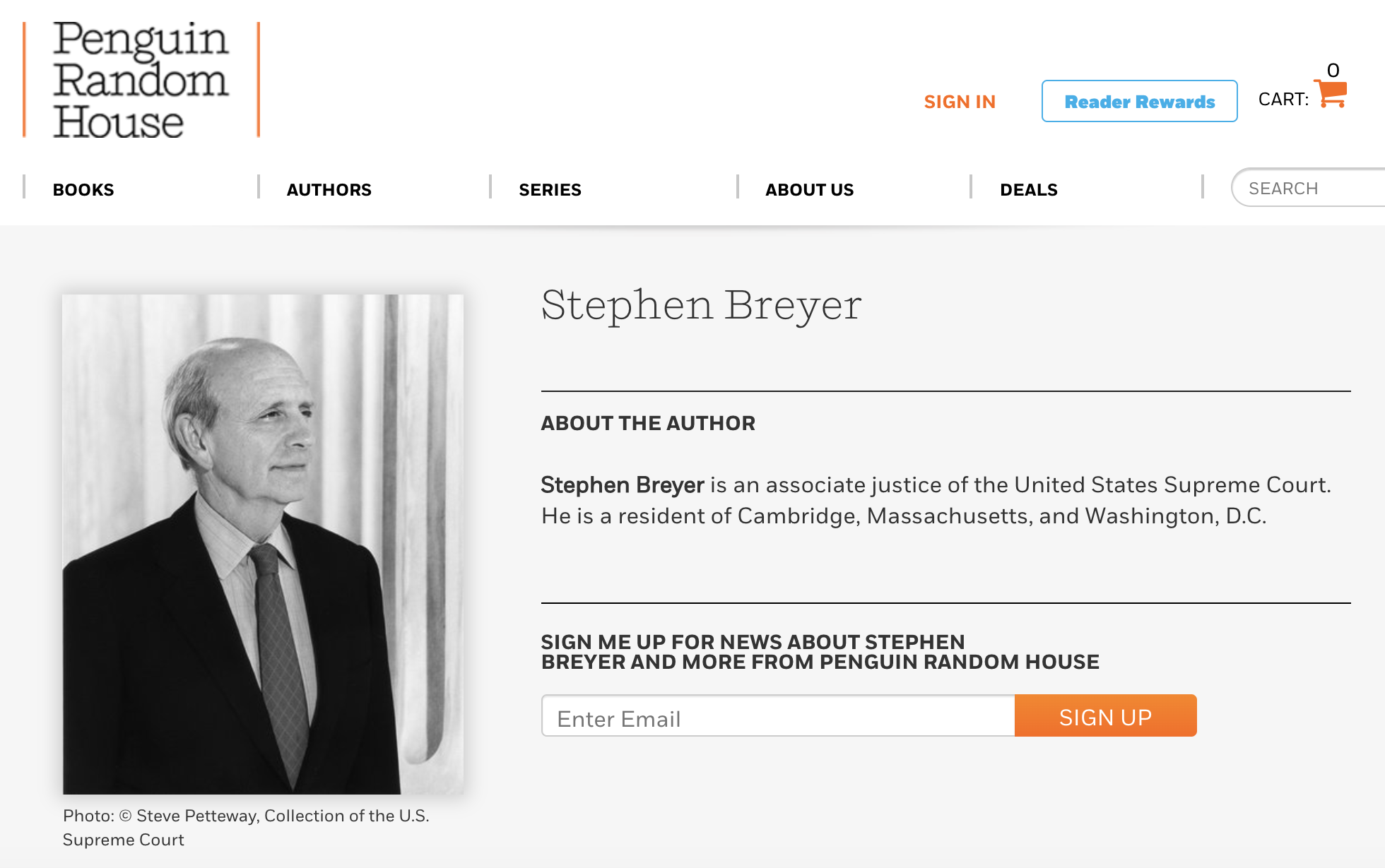FTC Uncovers the Reasons for the Justices’ OT19 Recusals
Fix the Court released its annual Supreme Court recusal report today, providing explanations for all but one of the 145 times in which the justices disqualified themselves from cases and petitions since Oct. 7, 2019. FTC did not identify any instances this term in which the justices were required by law to recuse but failed to do so, which means the nine cleared a basic ethical hurdle.
 The most interesting petition that yielded a recusal – though arguably could have yielded three – concerned a book about Rocky, a tree “that dreams of becoming the Rockefeller Center Christmas tree.” Penguin Random House and Viacom allegedly ripped off the idea and turned it into their own book and a movie.
The most interesting petition that yielded a recusal – though arguably could have yielded three – concerned a book about Rocky, a tree “that dreams of becoming the Rockefeller Center Christmas tree.” Penguin Random House and Viacom allegedly ripped off the idea and turned it into their own book and a movie.
Cert. was denied, and Justice Breyer recused himself since he holds stock in Pearson PLC, the education and publishing company his wife’s family founded that owned much of Penguin from 2013 until Apr. 1, 2020. (Penguin also publishes his and his wife’s books.)
Justice Sotomayor, though, has earned nearly $2 million in Penguin royalties since joining the high court did not recuse, and neither did Justice Gorsuch, who’s raked in $555,000 from Penguin since 2018. “Book publisher” is not a category in the federal recusal law, but we think that such large payouts should cause Sotomayor and Gorsuch to reconsider their decisions to sit on Penguin cases.
Including the above petition, OT19 has featured 16 recusals triggered by stock ownership, which would not be necessary if the three stock-owning justices (Roberts, Breyer and Alito) sold their shares of individual securities. FTC has long urged the justices to do so. In the five years since our founding, these three have halved their stock holdings, though, leading to a significant decrease in stock-based recusals.
“Stock ownership not only limits the number of justices available in certain cases, it also causes unforced errors, like when a justice sits on a petition in spite of a financial conflict,” said FTC’s Gabe Roth. “I encourage the justices to sell off their stocks or instead put their investments into bonds or index funds. Since they likely won’t do that of their own volition, we look forward to working with members of Congress on a ‘TRUST Act’ for the judiciary in the coming weeks.”
Here is Fix the Court’s recusal report. Here is an easy-to-read chart.
This term also featured one recusal we could not explain. Breyer disqualified himself in 19-1031 Erin Capron, et al., v. Massachusetts Attorney General, a case concerning employment law and the federal au pair program. Breyer lives in Cambridge, which is also where Capron is based, and it’s possible the justice has a personal connection with Capron or with someone in the Massachusetts attorney general’s office. It’s also possible that Breyer or someone in his family has a connection to the au pair program.
What’s ironic about this recusal is that in 1993, when Breyer was being considered for the SCOTUS seat that went to Justice Ginsburg, it was revealed that he had failed to pay social security taxes for a housekeeper. Had he hired an au pair through the State Department, he wouldn’t have needed to.
If you think that you know why Breyer recused in this petition, please let us know at Info@FixTheCourt.com.
Though we were able to uncover the reasons behind the vast majority of recusals, Breyer’s Capron disqualification highlights another problem: the justices are not explaining their decisions to withdraw from petitions. Explaining these decisions would not require much work by the justices, simply a reference to the conflict that triggered the recusal, for example “stock ownership” or “family connection.”
The 21st Century Courts Act, introduced days before the start of the pandemic, would require judges and justices to briefly list the reason for each of their petition- and merits-stage recusals.
Additional highlights from this year’s report include:
New to us this term were recusals traced to current work outside the courtroom. As Chief Justice of the United States, John Roberts sits on the Board of Regents of the Smithsonian and presides over the Judicial Conference of the United States. He recused from suits involving both institutions this term.
On May 13, Sotomayor recused from 19-518, Colorado Department of State v. Baca, since she has a personal relationship with Polly Baca, one of the respondents in the case (though a different Baca than the one named in the abbreviated caption). She recognized the conflict on Mar. 10, several months after the case was granted cert., at which time the clerk of the court sent a notice to counsel that Sotomayor would no longer be participating. We are confused why it took Sotomayor so long to recognize what appears to be a close friendship.
Looking ahead, we’re interested to see how Kavanaugh handles Facebook cases, since one of his closest friends is Joel Kaplan, Facebook’s vice president of global public policy. Kavanaugh didn’t recuse from a Facebook petition that was granted cert. on July 9, and he probably doesn’t need to, but it’s worth considering going forward.